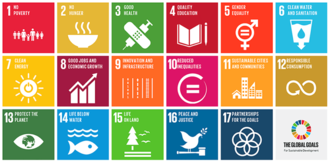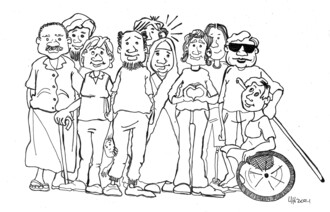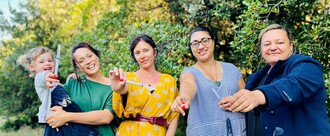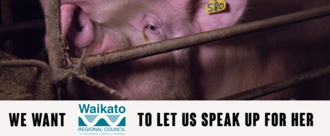-
Repeal and replace the Misuse of Drugs Act 1975Taking a health- and social-based approach to drug use would reduce stigma, meaning that community leaders, educators, health providers and whānau could focus more on prevention and harm reduction, while providing timely and judgement-free treatment or support. It would also mean that medicinal cannabis patients could access affordable relief without fear of prosecution. Prohibition continues to discriminate against Māori and Pasifika, who account for more than half of all cannabis convictions in Aotearoa. Convictions also fall disproportionately on young people. 2019 amendments to the Misuse of Drugs Act have failed to shift these unequal outcomes in criminalisation for low-level drug offences. Kākahungia te tangata ki te aroha, kaua ki te whakawhiu - Our people need a cloak of support and care, not punishment and stigma.7,333 of 8,000 SignaturesCreated by Emily Rosenthal
-
Reclassify Autism and ADHDQuick and accurate health diagnosis means people are able to access the medical attention and medications we need with respect and speed. However in Aotearoa the approach to ADHD/autism is out of date as it is still classified as a mental health disorder. There is a serious lack of diagnostic support. This means that people are not correctly diagnosed. The diagnosis process is currently not achieving the desired outcomes and affecting daily lives of those seeking a diagnosis of autism / ADHD. People with ADHD/autism can feel stigmatized to be treated as a mental health patient. It also overloads the mental health system unnecessarily. This is a major public health issue affecting all ethnic groups, social classes and occupational groups: and this found in all government departments. Reclassification will give recognition that autism is a real inherited neurodevelopmental disorder and reduce stigmatisation. When ADHD/autism is correctly classified as a neurodevelopmental disorder it means primary medical professionals such as GPs are able to diagnose, authorize medications and care for patients. If ADHD is treated, then it has been proven that Autism is also often treated. This in turn positively affects the children and adults and their families and education, employment and in social situations. NZ Disability Advisory Trust is the organization leading this petition as voice and lived experience of having staff with ASD Diagnosis.3,247 of 4,000 SignaturesCreated by NZ Disablity AdvisoryTrust
-
Ban the showing of Sia's movie "music" in New Zealand cinemasHere's why. Music does not aline with our values in New Zealand. It is discriminatory and has the power to change our society for the worse. The first problem that can be seen is blinding. Maddie Ziegler, a neurotypical actress is playing the lead role of Music, an autistic young girl. Ziegler mimics stereotypical behaviours of an autistic person, such as stimming. Given that Ziegler herself is NOT autistic, watching her stim and be paid for it has been described as an insult by many autistic people. Whilst many people would have been alienated for stimming in real life, Ziegler is being paid for forcing the natural behaviour of an autistic person. A second problem is that if in one of the first scenes, Music is launched into a colourful world of flashing lights, something that has been described by Eden, author of the autism self-advocacy website autisticats as a "sensory nightmare." The flashing lights make the movie totally inaccessible to people who have sensory problems, or people that have photosensitive epilepsy, a common trait within autistic people. Yet another problem within the movie is that Sia has not consulted with autistic people, and has no idea what she is talking about, being a neurotypical person herself. She continuously misrepresents the autistic community and one scene that highlights this is the fact that she has portrayed Music as a character with a special interest in dogs. Music reads a book that is big and bulky and has complicated vocabulary, yet her AAC device (A device that enables nonverbal people to communicate) has only simple preprogrammed words like "happy." Despite the fact of showing Music as a highly literate girl, with her own thoughts, the only insight that we get into Music's mind, is "nauseating dance sequences". There are so many more problems, both where Sia has been racist, ableist, and more that you can read about on the autisticats website which you can find here,: (https://theautisticats.weebly.com/) but I haven't even begun to address the most fatal mistake of the film. In many scenes, Music is having a meltdown caused by sensory overload and starts flailing her arms around. The response of one of the characters is to jump on top of Music and hold her down in a restraint called prone restraint. This restraint is deadly as it can cut off airways, and the fact it is being shown could normalise this restraint causing people to use it on friends and family who are autistic and may not be able to tell them to stop if they are experiencing sensory overload. With all of these problems of the movie, it is clear that New Zealand should not show this movie, or we will increase the dangers towards disabled people. This movie could very much increase fatalities, decrease acceptance and understanding of autistic people, and put us back many years.47 of 100 SignaturesCreated by Maya Ando
-
Rename Colonial Street Signs in Kirikiriroa/Hamilton City.This is important because street signs must be names of people who have up-held honor and integrity in their lives. They must be those who were role models and mentors, so our children and community can grow a sense of pride for themselves, in the same way: selfless and serving. Instead, we have names of those who committed violent crimes of theft and murder against women, children and the elderly. Bryce Street, Cameron Street, Grey Street and Von Tempsky Street must be among the first street signs to be removed. They are cruel reminders "of the devastating effects of British imperialism and its continous impact on Maori" (Pokere-Phillips, 2020). And which impact affects ALL New Zealanders. Please act now!57 of 100 SignaturesCreated by Jacquelyn Elkington
-
Label country of origin meat productsUnder public pressure our laws and standards have improved so the treatment of farmed animals in Aotearoa is more transparent and accountable. For example the use of sow crates for mother pigs was banned in 2010 but farrowing crates are still used. However overseas products don't have the same standards. They can have issues around contamination of local water supplies, routine use of antibiotics in feed, and poor animal welfare. The law is being updated this year to make country of labelling compulsory. Yet imported products which may have been processed in Aotearoa will still be allowed to be mixed with NZ produce and labelled 'Made in New Zealand'. Over 80 percent of New Zealanders believe it is misleading if imported pork which undergoes further processing in New Zealand, is not labelled as imported. Almost 60 percent of pork eaten in New Zealand is imported. Pig farmers here are making welfare improvements yet say they are 'competing against a wall of imported pork meat'. Without accurate labelling consumers are unable to make a choice that supports our farmers and animal welfare. Let's remove the loopholes and make sure country of labelling is accurate. References https://www.rnz.co.nz/news/national/377123/country-of-origin-label-now-compulsory-on-some-foods https://www.stuff.co.nz/business/124539599/pork-products-slip-through-country-of-origin-labelling-loophole https://www.newshub.co.nz/home/rural/2020/12/government-to-phase-out-use-of-farrowing-crates-in-pork-farming-by-2025.html https://www.nzherald.co.nz/nz/pig-farmers-hope-ban-on-sow-stalls-will-buy-loyalty/PDN5RCI7CCGV2F3I43GUPFOZME/36 of 100 SignaturesCreated by Anita Taylor
-
Keep Space For PeaceIn March 2021 Rocket Lab launched a US military Space Missile Defense Command payload 'Gunsmoke-J' which will be used for 'warfare combat targeting purposes'. It’s highly likely that the 'Gunsmoke-J' launch breached the New Zealand Nuclear Free Zone Disarmament and Arms Control Act (1987), because technological warfare systems in Space will include nuclear weapons. In addition, it could have violated the 'Approach to payload assessments under OSHAA 2019' which states that the NZ government will not approve 'payloads with the intended end use of harming, interfering with or destroying other space craft or systems on Earth.' Subsequently there have been at least three more launches for the U.S. military. We don’t want any more military satellites launched in Aotearoa New Zealand, and ask that the Government immediately rescind any currently permitted launches and disallow further launches, pending a full review of space-launch regulations in concert with the government-mandated review of the Outer Space and High-Altitude Activities (OSHA) Act 2017. An open letter was sent to Prime Minister Jacinda Ardern by The Peace Foundation International Affairs and Disarmament Committee asking her to refuse approval for the ‘Gunsmoke J’ launch. That letter is supported by people and organisations around New Zealand, as well as residents near Māhia — the site of Rocket Lab’s launch pad. Rocket Lab is now US owned, a major client is the US military Space Force and a key investor is Lockheed Martin the world's biggest manufacturer of conventional and nuclear weapons. Thus, the New Zealand government must ensure the OSHAA regulations prohibit the use of NZ for Space warfare by these entities with vested interests in the warfare business. The Minister of Economic Development is responsible for approving Space launches and should reject further military Space launches, because they contribute to the technological development of warfare in and from Space, which is contrary to the interest of ordinary people in New Zealand. READ MORE HERE: NZ rocket launches may breach nuclear-free laws, say peace groups, The Spinoff https://thespinoff.co.nz/politics/09-03-2021/nz-rocket-launches-may-breach-nuclear-free-laws-say-peace-groups/ Rocket Lab Monitor - is a group of volunteers focusing on information collection and education https://rocketlabmonitor.com/ Gisborne Herald: Payload disquiet http://www.gisborneherald.co.nz/frontpage-featured/20210309/payload-disquiet/673 of 800 SignaturesCreated by Auckland Peace Action

-
Call for Independent Inquiry into Institutional Racism and Racial Profiling by the Waikato PoliceWhere we live, work, play should be safe for everyone, no matter our ethnicity, what we wear, or who our friends are. Yet Police targeting and racial profiling is making people in the Waikato region feel unsafe. We call for an immediate independent inquiry which will: ○ Inquire into racial profiling by the Waikato Police and how the leadership and policies of the Waikato Police are impacting negatively on Māori, Pasifika and migrant communities. ○ Examine Waikato police's views about their behaviour and attitudes toward Māori, Pasifika and migrant communities in the Waikato District. Investigate the factors associated with attitudes among the Waikato command structure, it's hierarchy and policing staff to assess likely responses to proposed changes for building responsiveness to Māori, Pasifika and ethnic communities. ○ Examine the extent to which police attitudes are impacting on police practice and how Waikato Police aims to assess likely responses to the systemic changes in building responsiveness for Māori, Pasifika and ethnic communities. ○ Examine the cultural competency of the Waikato Police command structure, its hierarchy and officers. ○ Inquire into the role of the Waikato Gang Intelligence Officer under the 'Whole-of-Government Action Plan to Reduce the Harms Caused by New Zealand Adult Gangs and Transnational Crime Groups'. What role is the Gang Intelligence Officer and the Criminal Investigations Bureau providing to support gang members and their whānau through the co-design of a preventation focused strategy in the Waikato Police district? What training is given to Waikato Police officers surrounding the history of gangs in Aotearoa and cultural competency when policing gang members and their whānau and associates? In 2015, the Police Commissioner Mike Bush acknowledged the unconscious bias in the NZ Police service. This 'bias' is systemic, institutionalised racism.[1,2,3] Six years on, what cultural competency education/awareness programmes does the Waikato Police have in place to address the bias? An inquiry will assess the success or failure of these programmes measured in terms of police management and staff becoming more effective in their roles and exhibiting cultural responsiveness. If you’re Pākehā, have no criminal record, and encounter police you are less likely to be charged or sent to court than someone who is Māori. They found that police are 1.8 times more likely to take legal action against Māori than Pākehā, and seven times more likely to charge a Māori person with a crime, even when that person has no police or corrections record either.[4] Waikato police are targeting people because of their ethnicity which causes distrust in the community.[5] An independent inquiry can recommend the steps needed for real change, not just words. Te Huringa o Te Tai is the police strategy to change practices to reduce Māori over-representation in criminal justice statistics.[6] An Inquiry would look at how the Waikato Police utilising and implementing Te Huringa o Te Tai into it's everyday practice, professional development and liaison throughout all Maori, Pasifika and ethnic communities in the Waikato district? Aside from any recommendations we look forward to seeing: ○ Waikato Police acknowledge racism in their policing, taking responsibility, implementing cultural awareness and education programmes. ○ Waikato Police make a concerted effort to implement the NZ Police Strategy, Te Huringa o Te Tai, and genuinely working with all sectors of the Waikato community. This could be through the creation of a community leadership table where everyone has a say on community safety. ○ Communities being at the front and centre of owning our problems, and Police building genuine relationships with all sectors of community and valuing and respecting their leadership and input. ○ Consideration for the Waikato Police district to establish a mandatory requirement for all officers to wear body cameras. Body cameras are an effective tool for police reform and transparency. ○ Evaluation surveys implemented throughout high Māori, Pasifika and ethnic population communities in the Waikato Police district. These surveys will inform police so they can be responsive to each community. Waikato Police must not only engage with and listen to what each community wants from its police service; it must also use that information to guide its operations. This would also include the community participating in the co-design of their local community policing initiatives. Sign today to call for an inquiry and to make our communities truly safer. [1] Commissioner: Police addressing bias in Māori relations. 2015 https://www.newshub.co.nz/home/new-zealand/2015/11/commissioner-police-addressing-bias-in-maori-relations.html [2] Treatment of Māori by police is more than just unconscious bias in the force, psychologist says. 2020 https://www.tvnz.co.nz/one-news/new-zealand/treatment-m-ori-police-more-than-just-unconscious-bias-in-force-psychologist-says [3] Racial stereotyping by police 'systemic, institutionalised': Race Relations Commissioner, 2021 https://www.nzherald.co.nz/nz/racial-stereotyping-by-police-systemic-institutionalised-race-relations-commissioner/KY7MLSJLUKALPCFZIYSBLFYK5Y/ [4] Yes, there is racism in our police. Here’s what we can do about it. Spinoff, March 2020 https://thespinoff.co.nz/atea/05 [5] Waste of resources': Mongrel Mob claim police 'intimidation' after raid of birthday function. NZ Herald, February 2021. https://www.nzherald.co.nz/nz/waste-of-resources-mongrel-mob-claim-police-intimidation-after-raid-of-birthday-function/SQ2A7JBOPJVPMIVNQXBGV536MI/ [6] Police launches Te Huringa o Te Tai. New Zealand Police. November, 2019 https://www.police.govt.nz/news/release/police-launches-te-huringa-o-te-tai280 of 300 SignaturesCreated by Lou Hutchinson
-
Activate the Emergency Sirens in our Community!We have a shared vision of our Mercury Bay and surrounding areas that is safe, and feels safe in any emergency. Emergency sirens are a crucial component of our alert system for the Community. A lot of thought, discussion and research went into implementing them. The elderly, parents, workers, school children, outlying areas - the Community relies on the sirens and they have been the most reliable medium to alert people. Our Community cares, and many when hearing the sirens immediately act to assist others in need also. Deactivating our sirens not only affects people’s lives, it actually puts them in jeopardy in critical situations. There have recently been 3 major earthquakes in a 6-hour period and our community was alerted three hours after the last earthquake of 8.1. We request this decision be reversed and real community engagement is invited before the siren system is deactivated or any changes implemented. Community consultation is essential for everyone to feel safe and the best decisions made. We understand the Council is also interested in safety and are also making decisions based on what's best for the community. We have heard that: • 18 of the 27 sirens in our area are non-compliant with FENZ (Fire and Emergency) so have to be deactivated. • The coverage is patchy due to nature of the hills. • To get very good sirens will cost $5-6 million. The Council wants to explain to communities that sirens have 44% coverage and phone alerts have 93%, which still leaves some people out, but they are going to launch education that you do not wait for advice - "if long and strong get gone" and help your neighbours. We consider sirens an essential part of any emergency system for an empowered Mercury Bay community to ensure its safety. Sign to bring our concerns to Council to keep our emergency sirens.1,879 of 2,000 SignaturesCreated by Linda Cholmondeley Smith
-
Adopt the Sustainable Development Goals in AotearoaIn 2015, New Zealand joined countries around the world by signing up to the United Nations Sustainable Development Goals - a blueprint to achieve a better and more sustainable future for all. New Zealand is one of the many countries who made a commitment to implement the SDGs at home, and support the UN in achieving the SDGs in other parts of the world. But we are not doing enough. An independent Commissioner is recommended by Dr Girol Karacaoglu. He calls this an ‘Office of Wellbeing’, similar to the ‘Future Generations Commissioner’ in Wales. This should provide advice on long-term environmental, social and economic objectives with associated targets and monitor progress towards these objectives. The Inter-Parliamentary Union and UNDP have published a report recommending parliaments build an understanding of the SDGs. We should also be “mainstreaming the SDGs within parliamentary mechanisms”. It is promising that the Auditor-General is reviewing NZ’s preparedness to implement the SDGs, but our NZ Parliament could be doing better. In the lead-up to Election 2020, Judith Collins and Jacinda Ardern seemed to agree on something – a four-year parliamentary term. Research New Zealand then found that out of a survey of 1000 people 61% supported moving to a four-year term. If we’re going to encourage long-term planning for future generations under the SDGs, then we need to revisit extending our Parliamentary term. Let’s not forget it until the next election. If you care that: Everyone in New Zealand has enough and nutritious food too eat; Everyone in New Zealand can visit a doctor when the person needs to; Women and girls enjoy the same rights, opportunities, and outcomes as men and boys; Everyone has access to clean drinking water; New Zealanders have decent work which is safe and pays for a living; and Aotearoa's environment stays beautiful, Then you should be caring for the SDGs and signing this petition. The SDGs will help you to talk to your whānau, friends and colleagues about what we can and need to do to make NZ a better place to live for all. Our Parliament and Government can do better on the SDGs and in planning for our future.50 of 100 SignaturesCreated by Social Change Collective
-
Disabled people deserve their full equitable rightsEveryone should feel included in our society and have access to opportunities. The Government has a responsibility to ensure disabled people can access their full and equal rights. They can do this by ensuring the Ministry for Disabled People is led and run by disabled people. This will enable a society where disabled people can be fully included to be able to fully participate. Disabled form 24% of Aotearoa’s population yet experience inequitable access to health and disability services, education, a lack of accessible housing, lower employment statistics and struggle to break out of poverty through no fault of their own. There are many barriers disabled people face because society is built inaccessibly. For too long disabled have been ignored and denied equitable access and it is long overdue to bring them in from the cold. The Ministry of Social Development and Ministry of Health announcement of a non-disabled person, in the form of career official Justine Cornwall, to head the establishment unit of the new Ministry for Disabled People is deeply concerning. Disabled are generally unhappy that the new transitional director is not disabled and the voice of disabled is not present. Nothing is transparent and open which is concerning disabled that this will be led but from a non disability framework. We believe that while the position is a fixed-term role, the Establishment Director will be critical in setting a culture of inclusion and accessibility that is different from the judgemental, patronising culture of the past. For the sake of authenticity, a leader who identifies as a member of the disability community should have been in that role. However, the hope is that the appointment of the permanent head of the ministry will lead to a disabled person heading it. We want nothing about us without us, including in the development of the new Ministry. Please support our petition to help us gain full, non-disabling access to society. Remember disability is the only identity that does not discriminate.4,731 of 5,000 SignaturesCreated by Huhana Hickey
-
Prevent Cervical Cancer! Introduce HPV Self-Testing to Aotearoa – We Need it NOW.A Human Papilloma Virus (HPV) test as a screening test is a proven BETTER TEST than a cervical smear. Cervical cancer is now preventable. We have had the HPV vaccination introduced (free for all aged 9-26 years) - the next urgent step, to save more lives, is the introduction of HPV self–testing. HPV causes almost all cervical cancers. Testing for HPV is now a more effective and safer screening test to prevent cervical cancer than the current screen of cervical cytology (the smear). Everyone with a cervix can do it for themselves! The science is irrefutable. The current screening system is inferior, inequitable and unacceptable. Government have knowingly persisted in using the inferior cervical screening test which will see more women lose their lives. The Ministry of Health is committed to introducing HPV primary screening and self-testing but implementation of this requires government funding to support the programme change - the current screening register is not fit for purpose. HPV self-testing will address inequities in cervical cancer. Wāhine Māori are more than 2.5 times more likely to die of cervical cancer than non-Māori. HPV self-testing is a game changer. The self-test has already been proven to be a very acceptable test for those wāhine under/never-screened. It can be done at a clinic, at home, where-ever is best. Anyone who has a cervix, including trans, non-binary and intersex people can get cervical cancer however it’s hard to love having a cervical smear. It’s uncomfortable, it’s invasive and for some there is also anxiety, whakama, mistrust and previous bad or traumatic experiences. Māori and non-Māori will suffer unnecessary harm and death from cervical cancer unless this new HPV self-test is urgently introduced. We want to see all who are eligible for cervical screening offered this better test. The World Health Organisation is pushing for global elimination of cervical cancer – because of its high level of performance, countries are being encouraged to transition to HPV testing as the primary method of screening. Other countries have already switched to HPV testing as a primary test including England, Sweden, Norway, Denmark and Australia. Let's make Aotearoa New Zealand next! Our lives matter. Me aro kī te hā o Hine–ahu-one - Pay heed to the dignity of women. Ngā mihi, Tracey, Francesca, Jordy, Vanessa, Natalia & Kim - on behalf of many others who want this heard, those who are already diagnosed and in memory of those who have tragically lost their lives to this preventable cancer. This petition has the backing of Smear Your Mea, the Royal New Zealand College of General Practitioners, Te Rōpū Whakakaupapa Urutā (National Māori Pandemic Group) and the Royal Australian and New Zealand College of Obstetricians and Gynaecologists. Recent media coverage: https://www.newshub.co.nz/home/health/2021/04/why-the-government-should-introduce-self-testing-kits-for-hpv.html More information can be found at: https://www.nsu.govt.nz/health-professionals/national-cervical-screening-programme/hpv-primary-screening7,450 of 8,000 SignaturesCreated by Tracey Mackay

-
Make All Resource Consents for Factory Farms Open to Public SubmissionThe Waikato Regional Council is currently processing two applications to build industrial factory farms in the region. Buchanan Ellis Ltd have applied to build 6 new sheds that will house 42,000 chickens each in Waerenga and PIC New Zealand Limited have applied to triple the size of their commercial piggery to house 12,000 pigs in Maramarua. Both of these applications are limited notification, meaning the Council is not allowing the public the right to make submissions on these resource consents. We believe that factory farms are an issue of importance for the entire Waikato community due to animal welfare, environmental and health concerns, not just an concern for those who happen to live directly beside one. More than 70 percent of New Zealanders are opposed to factory farming and the overwhelming majority of Waikato residents do not want more factory farms built in our region. We should have the right to express this view to our local council in a healthy democracy.207 of 300 SignaturesCreated by PAAW NZ





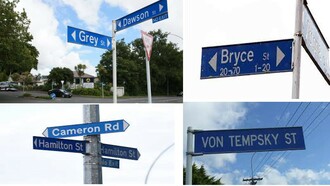

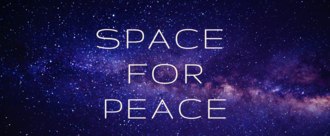.png)


